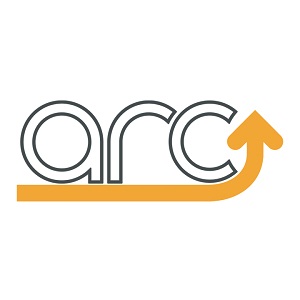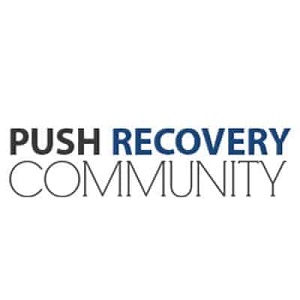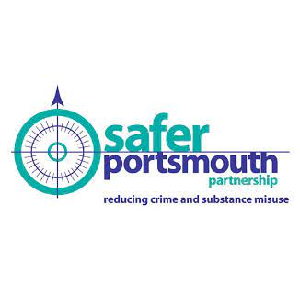Drug & Alcohol Rehab in Portsmouth

How Does Rehab Work?
Rehab involves multiple strategies that are designed to address individual addiction with support, wellness methods, and steps to restoring balance. Clients are introduced to addiction treatment programmes that are led by experienced and professional therapists. Along with therapeutic intervention, individuals can benefit from the support received from certified counsellors and group therapy. While free outpatient services do exist, you can not expect the same level of care as those offered privately. For those who enter residential rehab, it requires that you remain inside the centre or the facility for the duration of treatment. Outpatient services are a choice for those with less severe drug or alcohol dependencies. You will meet with a counsellor while keeping up with work commitments and staying at home.
What Happens During Residential Rehab?
Rehab is the first step towards recovery and a substance free life. It can be challenging to work on quitting addictive behaviours on your own but with the support of professional intervention, an addiction free life can be achieved. You may fear the unknown; however, a breakdown of the process can help put your mind at ease.
Prior to entering treatment, every individual will be assessed by a medical professional. The aim is to create a treatment plan suited to individual health and wellness needs. This is particularly important for those with a history of addiction and comorbid mental conditions including depression, anxiety or bipolar disorder.
The next stage of a rehabilitation plan is detox. Detoxification from substances requires the removal of the drug or alcohol from the body, typically over a period of time that limits withdrawal symptoms. Detox should ideally be monitored professionally to help those with withdrawal symptoms. When the substance is removed from your body, the next phase of treatment begins (therapy).
Rehabilitation includes meeting with a therapist for private & group sessions, participation in skill-building activities as with an inpatient or residential rehab, or group meetings that are common with outpatient 12 Step programmes. We explore the different phases of rehab in further detail.
1. Assessment

A complete medical assessment is an initial step to receiving the appropriate treatment in rehab. If you are looking into inpatient treatment, you can expect a telephone assessment by an admissions team. The telephone assessment will provide the treatment facility with the information needed to develop a unique treatment plan. The medical support staff will also have the information to manage clients through the process of detox.
Should you require the assistance of a medical expert to manage addiction, seek a medical assessment prior to treatment commencing. Assessments are an important part of choosing the right therapy and whether inpatient or outpatient programmes are most suitable for your healthcare requirements.
2. Detox

Detox is a process in which substances such as drugs and alcohol are safely removed from the body. It is managed by professionals in a rehab facility.
The reason medical detoxification from substances is advised is owed to the difficulties and the nature of withdrawal symptoms that may occur during this time. Without reliance on a professional service and medical attention, the risk of relapsing is increased. Individuals who receive detox and an assessment will be required to participate in a therapeutic programme that entails inpatient rehab or outpatient services.
3. Therapy

Therapy begins when the body is rid of drugs including alcohol. The option of being assigned to an inpatient or an outpatient service will depend on the individual assessment, finances, and life commitments. Therapy provided in treatment ranges from individual counselling with a therapist, the attendance of group therapy, and emphasis on building positive coping mechanisms and life skills.
Step by Step Process for Residential Rehab
To understand your medical and mental health history.
Arrange a suitable date to begin your journey to recovery.
Begin the managed withdrawal process from substances including alcohol.
To understand the root cause of addiction and how to overcome it.
Aftercare is provided to help manage the risk of relapse.
To help heal the wounds that addictive behaviour has caused others.
Find your Nearest Rehab Centre near Portsmouth
The nearest rehab centre is ARC – Drug & Alcohol Rehab Center.
Address: ARC – Drug & Alcohol Rehab Center, 54 Northern Rd, Cosham, Portsmouth PO6 3DP, United Kingdom
Call 0333 4444 432 to discuss your alcohol or drug rehab requirements and any other questions you may have about the process of residential rehab.
Outpatient Addiction Services in Portsmouth
When you look for a treatment programme, it will be influenced by the nature of the addiction and your budget requirements. Individuals who enter an inpatient or outpatient programme will need to give their full commitment to make the most of therapy. Let’s determine the pros and cons of outpatient services compared to residential treatment.
An outpatient service does not require individuals to stay at the clinic for therapy. If you have work, family, or other commitments, outpatient programmes allow you to concentrate on these commitments while visiting a facility or counsellor to receive addiction counselling and other care services.
When you have decided that outpatient treatment is an approach you want to pursue, the next step is to find a professional programme provided by a CQC registered organisation or charity.
The Benefits of Outpatient Services
Private Outpatient practices focus on individual support that is customised to suit the needs of every patient. – Outpatient treatment is a more flexible arrangement that will help many individuals regardless of financial or work commitments. It includes the attendance of weekly sessions with a qualified counsellor. – It is a more cost-effective treatment programme compared to inpatient services.
The Challenges of Outpatient Services
Outpatient services will always have a crucial place in rehabilitation but for drug and alcohol dependence, remaining in the same environment with access to triggers and the usual social circles may risk relapse. Furthermore, free outpatient services provided by the NHS or UK-based charities do not provide the same tailored programme that private outpatient services provide, and there is typically a waiting list before you can be accepted for treatment.

How Much Does Rehab Services Cost in Portsmouth?
Alcohol & drug addiction treatment within a residential setting can cost around £1500 – £4000 a week. Residential rehabilitation is one of the more expensive types of treatment for drug and alcohol dependency. For free and affordable services, charities and government funded services offer care programmes for all individuals seeking help for addiction.
The NHS and charities such as Turning Point will need a self-referral to be considered for therapy. You can also find many other affordable services (such as private counselling) or free therapies and community-supported services for those with drug and alcohol dependencies. These groups include AA or Alcoholics Anonymous, Narcotics Anonymous, and Cocaine Anonymous.
Support Groups in Portsmouth

Portsmouth Lunchtime
Buckland United Reformed Church, (junction Kingston Rd/Queens Rd), 174 Kingston Rd, Buckland PO2 7LP

Cosham Discussion
Wymering Methodist Church, 6th Ave PO6 3PD

Portsmouth Saturday AM
Church of the Holy Spirit, Fawcett Rd PO4 0DY
The Pros and Cons of Seeking Treatment in Your Local Area
Pros
1. You are familiar with the area which may provide a layer of comfort/safety.
2. Family or friends can easily travel to visit or are close by.
3. You could save on the costs of travelling long distances for treatment, or free addiction services may only be offered in your area of residency.
Cons
1. A local environment means access to drug dealers or other triggers. This is more of an issue if you opt for outpatient programmes.
2. Not considering locations outside your area could mean a missed opportunities for more valuable and rewarding programmes.
3. Addiction treatment programmes that are close by don’t always provide the best standard of rehab.
If you are unsure of how to look for a rehab service you can trust, consider the CQC. The CQC website offers listings of rehabilitation services and organisations that are ranked according to the standard of its services.



